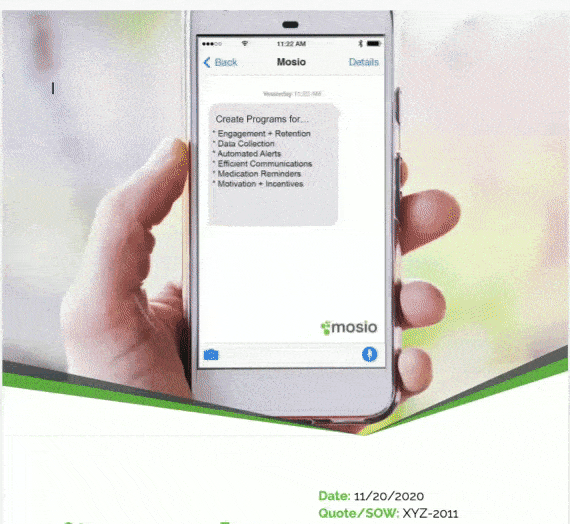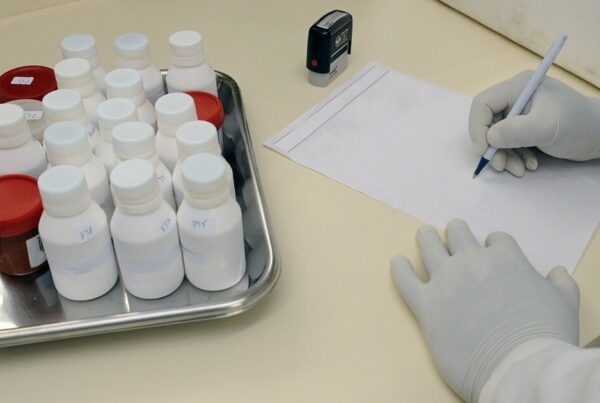If you’re new to project management in clinical trials, this guide will help you understand what it means to be a project manager on a clinical trial, and then provide some practical tips to help you plan and manage your clinical trial effectively.
- Struggling to effectively manage timelines and budgets in clinical trial projects?
- Feeling overwhelmed by the complexity of regulatory requirements and documentation?
- Unsure how to navigate communication challenges between stakeholders?
This article is for:
- Clinical trial project managers seeking practical strategies for streamlining processes and maximizing efficiency.
- Researchers and coordinators looking to enhance their understanding of project management principles in the context of clinical trials.
- Pharmaceutical and biotech professionals interested in improving trial outcomes through effective project management techniques.
Project Management in Clinical Trials: How Does It Work?
As a Project Manager, you may need to be prepared to manage client expectations from day one and will be responsible for managing resources and relationships with internal and external parties. As a Project Manager, your main job function is to get projects completed on time.
The importance of your role means that you will have regular contact with senior stakeholders across all functions in an organization and therefore be highly visible within your organization. You will ensure your team is focused on building long-term relationships that benefit both parties; being able to build good relationships quickly will allow you a high level of engagement with key stakeholders.
Good project management in clinical trials requires a detailed understanding of business procedures, being aware of commercial and strategic priorities, and an awareness of key performance indicators and trends. The key areas of expertise for clinical trial project managers are communication, relationships, influence, planning, attention to detail, and following instructions.
Strong teamwork skills are also essential when working on projects as well as people management skills. You will need to be adaptable to a rapidly changing environment with diverse cultures; you will also be required to negotiate successfully with stakeholders at all levels.
Being an effective project manager in clinical trials is a challenging but fulfilling role. As well as being rewarded with great job satisfaction, you may find your salary increases significantly as you gain experience. However, like any other profession, there are challenges associated with being a clinical trial project manager and you will need to be emotionally resilient when dealing with change.
Common problems include:
- Rapidly changing priorities and unrealistic expectations of resources
- Internal conflict between team members
- Dealing with stressful situations on a daily basis such as late deliveries or looming deadlines
- Having limited influence over projects due to numerous stakeholders who have input on projects being assigned to your team
You will need to be able to organize tasks based on deadlines, manage staff resource allocation, and work with your team members to ensure projects are completed on time. It is essential that you listen to client requirements when managing your project. Your team will look to you for guidance in difficult situations and as such, it is vital that you have excellent communication skills. You will also be required to report project status information throughout a project lifecycle as well as performance against specific objectives, these metrics can be used by management in evaluating staff effectiveness.
Tips for a Clinical Project Manager
Clinical project manager is one of those jobs that, like teaching or parenting, requires a different set of skills and approaches. Among other things, it requires project management.
So what makes managing clinical research projects different from any other sort of project?
Well, in order to begin answering that question let’s first look at what makes any sort of project management different from regular life. In short, it is knowing your resources and being able to apply them towards meeting goals.
Here are some things that a clinical project manager should keep in mind:
- Having a solid budget and a clear schedule for every step of your project.
- Having effective methods for team communication, as well as leadership from above.
- Working with expert subject matter consultants to make sure that your plans are effective and reliable.
There are many other tips for being a good clinical project manager, but these are some of the biggest in terms of avoiding common pitfalls or conflicts in project management methodology. If you want to be successful in your job, know what resources you have access to and how they can be used most effectively.
Don’t forget to consider tips that are specific to project management in clinical trials. These might be more limited, but they can be equally important for your team. For example, working with regulatory bodies is a critical part of any clinical trial, but understanding how to navigate their complex structure and meet their expectations can be a challenge for even experienced project managers.
Good project management for clinical trials is an essential part of a successful research process. Having a clear plan from start to finish, as well as qualified personnel, can help you to avoid common pitfalls and make sure that your project comes in on time and within budget. And there are many more tips and tricks that you can use when you need to work with regulatory bodies or coordinate teams of expert consultants. Remember that just because something seems different doesn’t mean it has to be overwhelming. Use good project management techniques to keep your focus on what matters most: getting results!
How to run effective meetings with your team members
One of the most important aspects of project management for clinical trials are effective meetings. No matter how efficient your team members are, if they’re not meeting regularly, then it’s going to be difficult to keep projects on schedule and ensure that everyone knows what’s going on at all times. Effective meetings help to solve problems quickly, identify potential issues before they become major roadblocks and keep everyone moving forward with their work. The key is to hold effective meetings consistently, meetings are only useful if they’re regularly scheduled and if people feel comfortable discussing what needs to be discussed.
Pick a meeting location and schedule that works for everyone on your team. Meetings are only useful if they’re easy to get to and scheduled at a time when everyone can attend. Try to avoid scheduling too many meetings all at once as it can become overwhelming. Likewise, try not to schedule them at times when people are likely to be focused on work that isn’t directly related. People need time in their day to focus on other tasks and don’t want unrelated matters distracting them from what they need to be doing.
Follow these tips to help keep your meetings effective:
- Make sure that everyone is on time for meetings.
- If someone is late, you might need to reschedule so that they can come and discuss whatever it was.
- Be sure to start and end meetings on time.
- It’s also a good idea to have a meeting go-round. It is a great way to make sure that everyone has had an opportunity to talk about their topics during meetings. How often you do go-rounds depends on how many people are in your meetings. It is best not to waste too much time talking over each other just because there are more people present.
Keeping your team informed about the clinical trial
Keeping a clinical trial team informed on a daily basis is key to success. There’s just too much going on during these types of projects to not communicate regularly with your team members and update them on all their responsibilities and deliverables. A good project manager will be able to keep stakeholders informed with reports and will keep team members informed with notes or individual emails.
As new information comes in, the project manager can quickly and easily relay it to everyone involved in a timely manner. That type of communication helps ensure you aren’t wasting time answering basic questions again and again or waiting for important feedback from someone who isn’t aware of what’s happening.
An example of an effective way to keep stakeholders informed is with regular emails and reports. Project managers who are taking part in a clinical trial should receive updates and relevant information on a daily basis, so they can distribute it to their teams as needed. This keeps everyone informed while reducing back-and-forth communication and helps reduce confusion.
As a clinical project manager, you may also be asked to help keep patients informed about their participation in a trial. This type of communication with patients is generally conducted through phone calls or emails and depends on how long they have been participating in that trial. For more information on your role as a project manager when it comes to patient communication and retention, check out some helpful resources from Clinical Trials Arena.
Project management principles in clinical trials
Just like in any other business, planning and management are key to a successful clinical trial. A good manager should set clear goals, organize resources and delegate tasks so that all team members are clear on their responsibilities. They should also facilitate communication among team members, look for opportunities to make improvements, and be proactive with regards to potential issues.
We know what you’re thinking: your scientific skills have little to do with project management—but there’s truth in that statement only if you think of management as supervising every aspect of your study yourself. Think of it instead as simply facilitating effective teamwork so everyone involved is aware of what their role is and how they can best contribute toward achieving success.
A good project manager will also recognize that there are different types of clinical trials, each with their own set of challenges. For example, a drug study will have its own specific regulatory requirements and an investigation into new medical devices may involve equipment and electronic record keeping.
The clinical trial project manager should discuss these factors at length with their team so that everyone involved knows what to expect and is prepared for any hiccups along the way. This will ultimately lead to a smoother process overall—especially if you’re conducting your research over several years—and allow you to make better use of valuable time and resources.
It is important to always think ahead. It might be tempting to take a day off when you’re tired, but doing so can really set you back in your work. For example, if you’re a clinical project manager and decide not to come into work one day because of fatigue, that could leave your team shorthanded for a couple of days—which may mean that testing has to be postponed for weeks or months. Not only does that mean your research will take longer than anticipated, but also you may find yourself running up against regulatory deadlines later on down the line which are much harder to meet with a short timeframe. The Project Management Institute has a page dedicated to clinical trial information for additional information.
What is a clinical trial project plan?
The specific deliverables and timelines of a project plan are based on what an individual project manager expects to accomplish. A single clinical trial can take years, so having concrete milestones and deliverables with exact timing is essential for project management in clinical trials. Project managers will often develop detailed, line-by-line schedules that map out a year or more of tasks and related deadlines. Major milestones can include everything from identifying sites and recruiting participants to regulatory submission requirements or final approval of study results by ethics committees. Project managers in clinical trials will work closely with other members of research teams—from technicians performing experiments to doctors who conduct examinations—to ensure their efforts remain on track.
Many project managers in clinical trials will also develop detailed budgets for their projects, mapping out how much time and money is being spent on each step of research. Tracking costs from day one can help a project manager avoid major costs down the line. Even simple errors can end up costing hundreds of thousands or even millions of dollars over an extended project timeline.
A detailed budget will help an experienced project manager identify opportunities to save money while still keeping their project on schedule and within its budget, ensuring that study efforts don’t experience any major bottlenecks. As with any other kind of project management work, it is vital to ensure that your clinical trial has assigned resources at every step.
You can also see why project management in clinical trials is needed: multiple research groups, vast amounts of money and costly resources, many moving parts. And because clinical trial projects are often funded by pharmaceutical companies or other entities with a financial stake in study results, having a designated project manager with expertise in study design and patient recruitment will ensure that everyone on your team is working to improve your end product: better drugs for patients. By hiring an experienced project manager for your clinical trial—or doing everything yourself if you have enough time and expertise—you can ensure that all study efforts move along smoothly, ending with actionable results for drug companies looking to bring safe new treatments to market.
How do you get into clinical trials project management?
When looking for a job in clinical trials project management, it is best to apply to organizations within your geographical area as you may then be able to take on part time work while you are learning on-the-job. Once you have gained experience and achieved success with projects, you can apply for full time jobs with other organizations.
Alternatively, you may wish to work for yourself or set up your own company if there is a gap in the market for your services; however, running your own business does require additional skills. If becoming self employed interests you, be aware that it will require commitment and hard work to succeed but being self employed allows flexibility so if working away from home is important to you then taking on additional freelance projects could suit.
Another way to gain experience is to do internships or clinical research assistant work. Aspiring project managers in clinical trials will find that a lot of trial management jobs require some previous experience and it can be difficult for new graduates to find roles but internships give students an opportunity to try out roles within clinical trials without making a long term commitment; they also make it easier for employers who may not otherwise take on new graduates to take them on as interns are short term and low-risk commitments.
If you would like to be a project manager in clinical trials, then you should consider your strengths and abilities. Consider what subjects you enjoyed studying at school and university and think about what skills or qualities you have that could make you a good project manager in clinical trials.
Think about what personal characteristics would help in your role; for example, extroverts may find it easier to liaise with other departments, whereas conscientious people may perform better at planning. Keep an eye out for job adverts on job boards or visit healthcare organizations to ask if they are looking for project managers. This is also a good way of meeting people who work within clinical trials and gaining more contacts.









